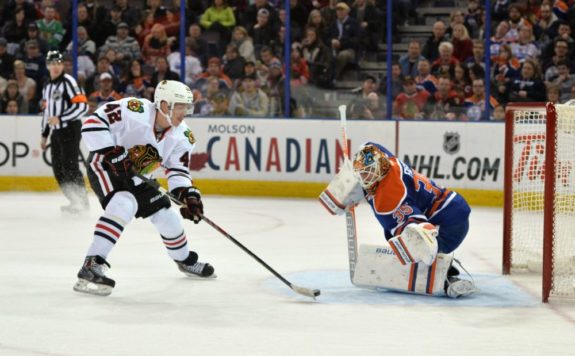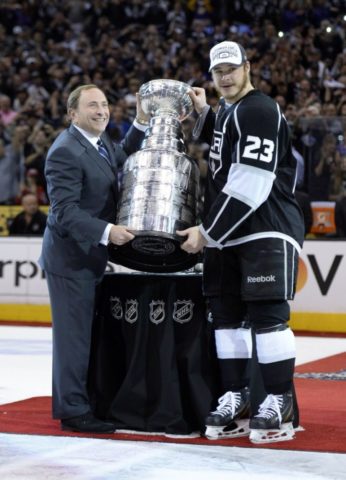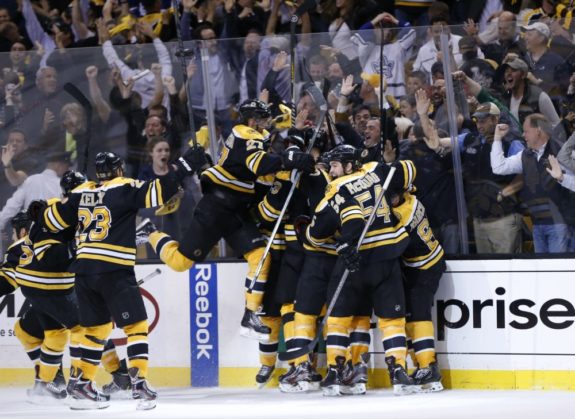The 2004-05 NHL lockout changed the direction of the league for many years to come. Commissioner Gary Bettman and the players failed to reach a collective bargaining agreement for the second time in nine years and the league was canceled for a full calendar season. Beginning in the 2005-06 campaign the league announced many rule changes that would make the game more appealing to their fanbase. The rule changes were centered on making hockey more exciting and also adding a new overtime element to the sport that has ultimately been hurting the competitive nature of the NHL for over a decade.
End of Regulation
Before 2005, teams that failed to score in overtime were both awarded one point each and the game would end. Today, if two teams fail to end the game in overtime then they advance to a three-man shootout system. If one team outscores their opposition during the three-man shootout, the game will finish. If both teams are even after three shots per side, then they go into a sudden death round until there’s a decisive winner. There are no more ties and the winning team is awarded two points while the team that comes up short in either overtime or a shootout is awarded one point—the loser point.

The Loser Point Doesn’t Make Any Sense
The loser point essentially rewards a team for extending the game beyond regulation time and awards them a valuable point in the standings. What makes this scoring system so bizarre is that you can actually make the playoffs with a losing record overall. A prime example of this came in the 2011-12 season when the Los Angeles Kings snuck into the playoffs as an eight-seed with a losing record.

Yes, lengthy injuries and trades contributed to their late-season success, but the Kings edged out the Dallas Stars who were above the .500 mark to end the season. The Kings finished 40-27-15, while the Stars went 42-35-5. Although they won more games and had a winning record, the Stars were punished for not claiming more loser points. To make matters worse for the Lone Star State, the Kings eventually went on to win the Stanley Cup that year and were the lowest seed to ever secure the coveted trophy.
We saw a similar scenario play out twice in 2015-16 as well. In the Eastern Conference, the Detroit Red Wings earned the final spot in the playoffs after having one fewer win than the Boston Bruins, but tied them in the standings with 93 points overall. This was very controversial because the tie-breaker came down to most wins in regulation/overtime (ROW) and the Wings had two more ROWs than the Bruins.
In the West, the Minnesota Wild finished under .500 and had just 38 wins, one fewer than the Colorado Avalanche. Like the 2012 Stars, Colorado had far fewer loser points and missed out on the postseason despite having more total wins.
The argument that both teams have the same opportunity to secure points is true, but why should a team get punished for having more wins? Sure, it makes for a tighter playoff race in March and creates the illusion that the NHL has a lot of parity, but it also hinders a team’s ability to climb back into contention if the teams in front of them are getting handed point after point for losing.
Since the 2005 lockout, 88 percent of teams that are four or more points out of a playoff spot after Nov. 1 have missed the postseason. Climbing out of a four-point hole seems easy, but in reality it is not. The loser point makes it seem as if teams stand a chance once they get behind in the standings early on in a calendar year, but the feat is much more difficult due to the one-point cushion for extending the length of a game.
Why It’s Time to Alter the Current System
The pace of play in the third period, especially in the latter half of the frame when two teams are tied, has significantly slowed. There has been no sense of urgency for either team to make a high-risk type of play when they know that they can at least secure one point at the end of 60 minutes if tied. Organizations have no incentive to push the pace and attack while the speed of the game is taking a major hit in the process.
One possibility that would get rid of any controversy surrounding the point scoring system would be to simply just eliminate the shootout and loser point altogether. Shift back to the pre-2005 overtime rules and credit the winning side only.

The scoring system would be a 2-0-1 system, two points for a win, zero points for a loss (overtime or regulation) and one point for a tie. If the league still wants more wins, then simply keep the added five minute overtime period at 3-on-3. Organizations would have more incentive to win and the likelihood of a tie would drop off dramatically. This way nobody is being rewarded for losing in overtime or winning a game in a breakaway skills competition.
The NHL is the only major sport in the US that rewards a team for losing a game. There are no points for an extra-inning loss in baseball or an overtime loss in the NBA. The NFL ends in a tie after a 10-minute extended period and the PGA plays extra holes until there is a decisive champion. Awarding any point to the losing team in any sport just simply does not make any sense, especially when it is just one point less than what a win is worth.
Clearly, the NHL allows for franchises to move up and down in the standings from year to year, but the current system is actually hurting the game. The league must move away from the current point scoring system and eliminate the loser point altogether.